The expansion of Customer Success in terms of scope led to new roles with specializations such as Customer Success Operations (CS Ops).
CSMs or even CXOs cover this function at early-stage startups. Still, as the company scales and the CS teams mature, having a separate operations role or team will be essential and prevalent.
At Rocketlane, we want to actively help organizations build this function by interviewing folks in CS Ops and bringing out their stories of successful transitions into CS Ops.
We spoke to Phil Hart, Head of Business Operations, and Asia Tillotson, Customer Operations Executive at Goodlord. They talk about their transition to CS Ops, the experience and skills that helped them make the transition, the challenges they face in CS Ops and how they take them on, and their aspirations for the function.
Here’s the conversation between them and Kirthika, content marketer at Rocketlane.
. . .
Kirthika: Hi Asia and Phil! Thank you for joining me in this interview. Let’s start with an introduction about Goodlord.
Asia: Goodlord is a pre-tenancy platform that real estate agents use to speed up the moving-in/leasing process of the application. And this has a few key parts to it: time-saving is a big one. Another big one is compliance. There's a lot of legislation around move-ins, move-outs, and the lettings industry in general. Because they're so busy, they can potentially miss out on the key details or pieces of information they need to provide or include. And Goodlord helps you take care of that by facilitating the option to be compliant through progressing tenancies. There are a few add-ons around it: we can provide additional services to tenants and landlords to help take care of that whole renting process and experience. But the core functionality is in terms of the software helping people take care of that pre-tenancy process. So that summarizes it.
Kirthika: What does Customer Success mean for a product like Goodlord?
Asia: Our Success team is essentially split into three sections in terms of the number of accounts the CSM has. So Scaled is moving towards 250 accounts per CSM. They are smaller customers with smaller MRR, and they essentially have the Success function as a team they interact with. Mid-market is sort of middle-touch if you look at it as a scale of low-touch to high-touch. These CSMs have around 80 accounts each, and those CSMs will ideally be talking to their accounts once a month, once every couple of weeks. They look at how the customers interact with our products, how happy they are, if they see the value, etc. The third section would be Enterprise. And that would be a case where a CSM has 10 to 15 accounts that are all of a much larger size. It will be the type of account with which they'll be having weekly, sometimes daily calls to make sure that they're seeing the value and driving value realization.
Kirthika: Thanks for the detailed explanation! Can you talk about yourselves a bit now and how you got into Customer Success and CS Ops?
Asia: So at uni, I did a course in Liberal Arts and Natural Sciences. Essentially, rather than doing one or two subjects which is the traditional education path in Britain, you could learn four or five each year, it's kind of similar to the way that courses run in the US. So you could have physics lessons in the morning, history in the afternoon, computer science the next day, etc. And I loved having that variety. When it comes to employment, lots of things are quite narrow or specific. You know, you work in Sales, and you learn all about sales inside and out. What interested me about Customer Success was that you interact with different teams constantly. The role itself is diverse, you’re customer-facing, and you have to have those extroverted, outgoing skills. But, you also have to look at data and numbers and make sure that, say, if you've got 80 accounts, they are performing, know what the net revenue is, retention is, etc. And I liked the combination of skills that were required for it. And I think that was what interested me about it.
As for transitioning into CS Ops, I've been working at Goodlord since 2019. So I started in Customer Success in our mid-market team. I worked in mid-market for, I think, just under a year. And then, I was asked to help set up our Scaled team, so the subsection of our Success team that aimed to try and scale our Customer Success functionSo I moved into the Scaled team, started to set that up and I think that's where the initial interest in CS Ops came about. Having so many accounts, you need to be looking at things from a data-driven side of it more so than in mid. You need to be looking at it with an approach of processes and how can we be as efficient as possible because there are so many accounts you're looking after - you can’t just pick up the phone to see how someone is doing. And from taking part in the scaling side of things, that's when I think I got moved again by Phil into the Ops team that worked closely with Scale to sort of help out building that function.
Phil: When I got into Customer Success, I guess what I was looking for was getting into an up-and-coming industry—seeing how Customer Success could complement all of these young, fast, tech startups that are around East London in particular. And I guess the interesting thing about Customer Success is you are the nexus of the business. You have to understand every single part. You have to understand how Sales works, how Product works, how Support works. So, you can't be lazy. And you can't just choose to focus on one bit. So I enjoyed applying myself and gathering all that knowledge.
In terms of my journey, it has been slightly longer at Goodlord, but a very similar path. So I joined in 2016, just over five years ago, again, as a Customer Success Manager, when we had both a pretty small team and a good customer base. So we were about 25 heads at Goodlord, and our customer base was about 300-400. We've grown to 300 Goodlordians today and have a customer base of about 1250.
It was about nine months in that the Success team started to grow. And I kind of realized myself, I prefer sheets to people! So that was when I made the move. And I was sort of the first person in CS Ops. So I've had a hand in some of our systems as a CSM, but it was our director at the time who carved out that role for me. And that enabled us to grow the team quickly and grow the customer base. At the end of 2017, we restructured the organization; we shrank the Goodlord team while wanting to maintain a similar-sized customer base. So like Asia mentioned, the focus was on how we can serve more accounts per CSM. And that was the focus in 2018 when I was that dedicated Ops resource. The subsequent years are all about growing the team.
Kirthika: Can we get into more detail about how CS Ops was set up at Goodlord?
Phil: So I guess it was quite organic how the CS Ops function came about. As I mentioned, I sort of dabbled slightly in Operations while I was still a CSM. I helped out with the department metrics, processes, and, most importantly, systems. We decided to implement an entirely new system three months into that transition and start that Ops function. So previously, we were on a sort of custom-built version of Salesforce, and we moved to Gainsight. At that point, we realized that to complement having this powerful system, it required having an operational head there. That was how it formed.
Over time, I took on more operational functions. So I took on Sales Ops and Service Ops. And what we found is that our Customer Ops function got diluted quite a bit. So that was really where the need came about to hire a dedicated head for CS Ops. And that was how Asia’s role came about at the start of this year. In terms of the skills, I guess, as Asia mentioned, you know, you've got that wide range of skills that are required to be a CSM. But for CS Ops, there are some hard skills that are important to focus on: the ability to pick up complex ideas quickly, to do a process flow of what a renewal should look like across the Mid-market, Enterprise, and Scale sections of our customers, being very numerically driven--the ability to get your head around the metrics, to determine what influencing factors are going into a churn rate, for example, etc. You need these skills while also maintaining some of those soft skills. So just as when you're a CSM, dealing with customers every day, you need to be at good stakeholder management and be clear with your communication. We always call ourselves the internal CSMs. We're the internal CSM for our systems, and we're there to help our CS leaders gain value from the systems we have in place.
Asia: When we had the job role go live, I sort of hadn't thought about it initially. And then Phil approached me and asked if I’d thought about it, and I felt it was a part of my job in Scale that I love the most. I think that was what made me want to make the transition. It wasn't that I didn't enjoy being a CSM. But I realized that my favorite parts of the job were the Ops parts of it. And then, as the quarter progressed and I was transitioning to the role, I was writing my own to-do list. It was all of these things that I was thinking would be great to have. And I suppose that's been the nice thing about having a dedicated role. Now we know that the progress you can make when you have a specific person designated to it (Ops) is so fantastic and much greater than if someone is trying to juggle it alongside general CS.
Kirthika: How is the CS Ops function at Goodlord structured?
Asia: You’re talking to the only people who are part of the CS Ops function now! The Scale team requires the most support, so we are like a mini CS Ops within the Scale function. We help set up processes, make existing processes efficient, figure out logistics and strategy for the Scale accounts, etc.
Phil: Speaking of that mini CS Ops team, what we have is, Asia is the dedicated Operations Executive. But we have the Success Operations team, which includes the leaders from our CS. So we split Success at Goodlord into Customer Success and Adoption. Adoption includes customer onboarding, its customers adopting in the early months of their lifecycle with us.
As for the Operations function, what we do is we'll have weekly meetings to discuss some of the operational requirements, improvements, updates, etc., that would be with not only the heads of both Success and Adoption, but also the team leads. Asia and I work closely in this area. So I'm Head of Business Operations, which includes CS Ops, Sales Ops, and Service Ops. Asia and I work very closely with our Sales Operations Executive, whose work overlaps heavily in the areas of renewal and contract upsell. We also work with our Service Ops Executive, whose role overlaps very heavily in customer support. So really, what we're identifying is that CS Ops does have a lot of overlap with other departments and will work closely with the ops functions of those other departments.
Kirthika: That’s an interesting way of looking at organizing the Operations function! So what plans do you have for the coming year at Goodlord as the CS Ops team?
Phil: I’ve been tasked with justifying a growing Ops function by determining what metrics of CS Ops are there to improve. I think the one that we've touched on quite a few times is the accounts per CSM, but it'd be looking at the other things that Asia and I could have a massive influence over. Is it MRR renewed per CSM, for example? Is it looking at customer trainings per adoption manager? Within our onboarding department, what can we operationalize? And what numbers can we say Asia has positively affected to X degree? So that's really what will enable us to plan for the next year and beyond in terms of any potential head growth.
Asia: It's almost an internal goal for myself, and I think Phil will probably agree, is to have the Success team as a whole thinking more operationally; that’s a shift that we've started to make a little progress with and that's something that I'd be keen to kind of really develop more. E.g. When the team thinks of a new campaign that they'd like to run or a new outreach that they'd like to have, we’d like them to think, is there a way to do this operationally that will save me time? Or, if they want to look at a certain piece of data information across all of their customers, how can they do that operationally? The team doesn’t need to do it directly themselves. But I would love to see that pivot in the team to have them thinking more about how they can be using data and numbers in a really easy way to drive value.
Kirthika: What advice would you give to someone who is looking to transition into CS Ops?
Phil: The advantage that Asia and I have had coming from a CS background is knowing the ins and outs of the role. So my advice to someone coming from a non-CS background would be to get to know the role of a CSM. Know what a day on their job looks like. Or understand the role of an onboarding manager, adoption manager, or any customer-facing role. They also need to build awareness about the metrics that CS leaders care about. I imagine that somebody coming from a different functional area will be hot on those hard skills—numbers, data analysis, systems, implementation of new processes, etc. And of course, as I find out each time I interact with a business, CS is different at every company. So, they need to understand what CS looks like in the organization they wish to work at.
Asia: I agree with all that. I also think it would be great if they have some experience in a customer-facing role; I don't think it has to be customer success necessarily. But I think having that experience in terms of stakeholder management, being empathetic, and listening to your team to understand where their pain points are, etc.
It's important to have an understanding of numbers and data and those hard skills. But then, if you're not able to hear what the problem is or hear what's needed, you're never going to be able to implement the effects or the improvement in the first place. And so, if someone has that experience of being in some sort of customer-facing role, that’s an advantage. I suggest those keen on getting into CS Ops interact with people in those roles and understand the importance of those traits we mentioned. I think that can be beneficial as well.
Kirthika: Has your CS Ops experience changed how you go about solving problems?
Asia: It has for me. When I started as a CSM, an escalation would feel like the end of the world. But now I can think about how many people the issue will impact, how many times it has been reported throughout the team, what kind of time frame we have to fix it and look at things, etc. I also look at things in terms of their efforts and the outcome from the efforts, the balance between both. I think that shift towards quantifying the outcome is something that has happened since I moved into CS Ops and also looking at things much more based on the benefits and the data around it.
Phil: Yeah, I think when Asia joined the team, a potential risk is that the CSM team would just see that they have this resource of an extra CS Ops person and would just start asking for the world. So, for example, they had an escalation, they would ask for a particular data point or report. And the change when you're within CS Ops that you see is that you can't have people asking for 1000 different reports for 1000 different customers. But what you can see is if we can maybe mass produce this report, or in some way, share this report with our entire Mid Market base, or in a particular case, our entire Scale customer base. And I think it's that more scalable use of data and ops expertise that has been a focus for me for the past few years.
Kirthika: Thank you, Asia, and Phil, for taking the time to talk to me!


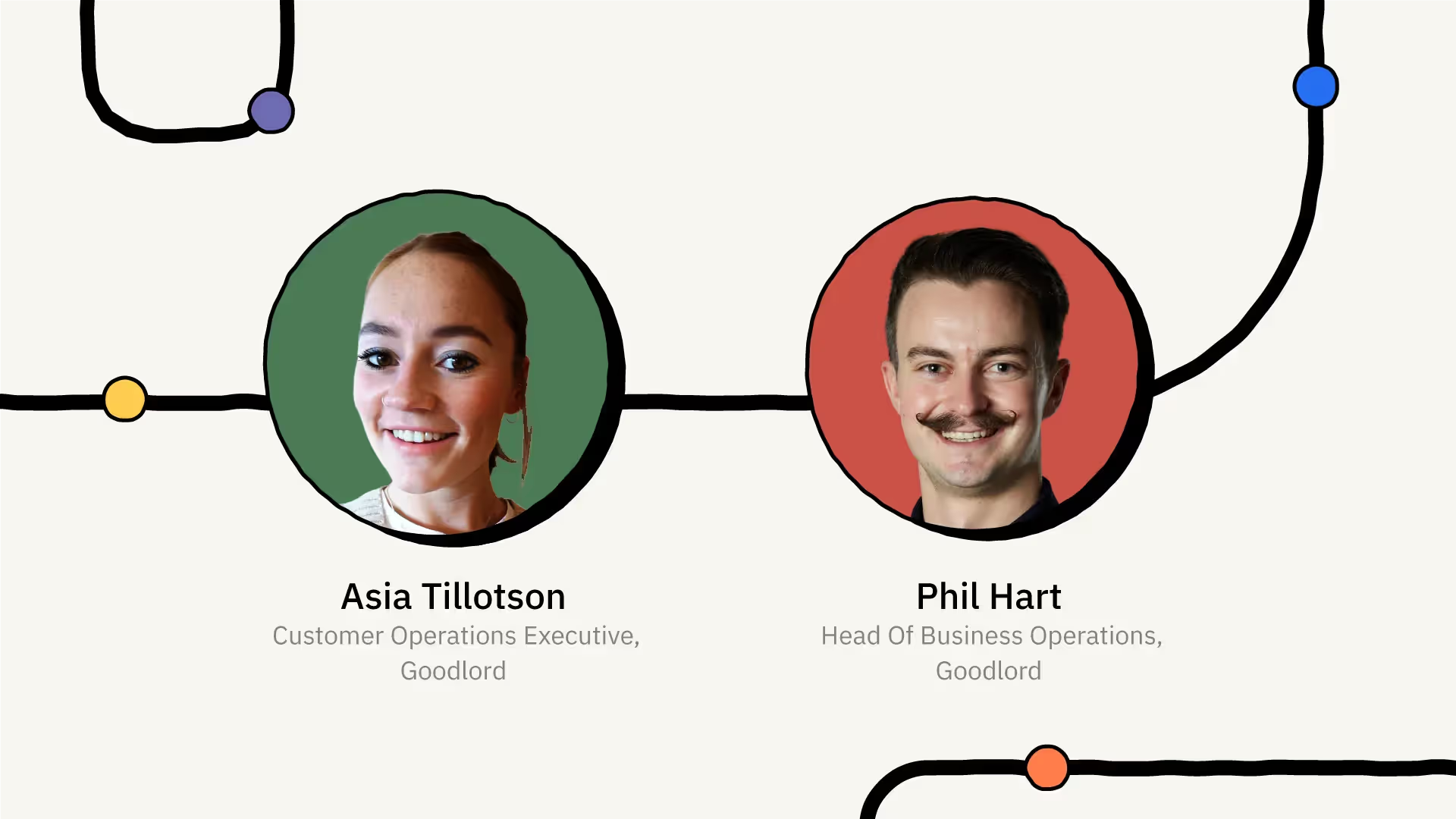

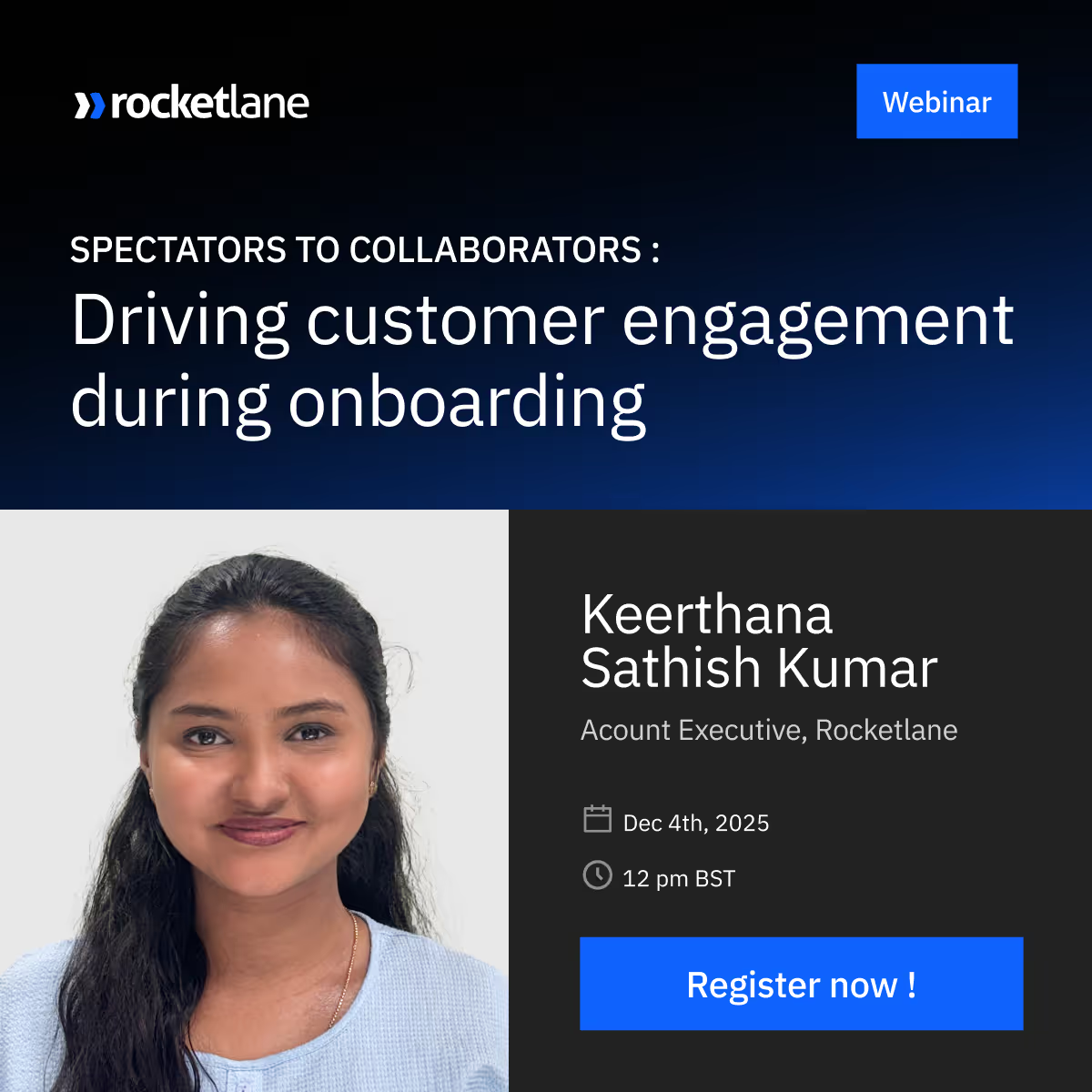


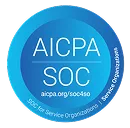
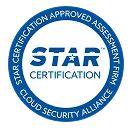

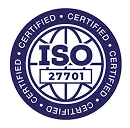









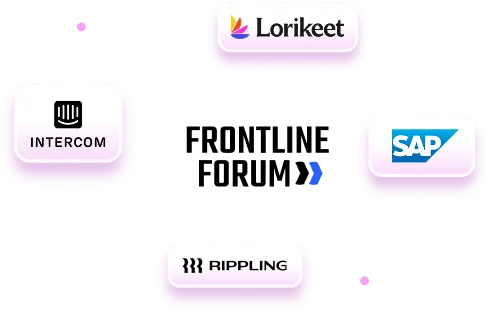
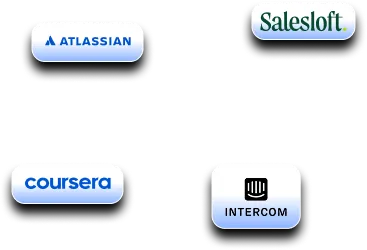
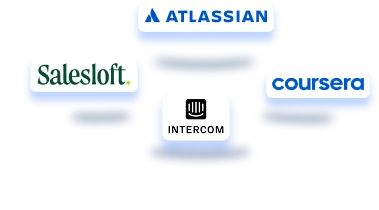

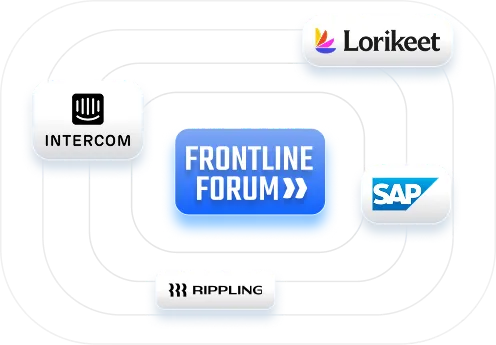
.webp)